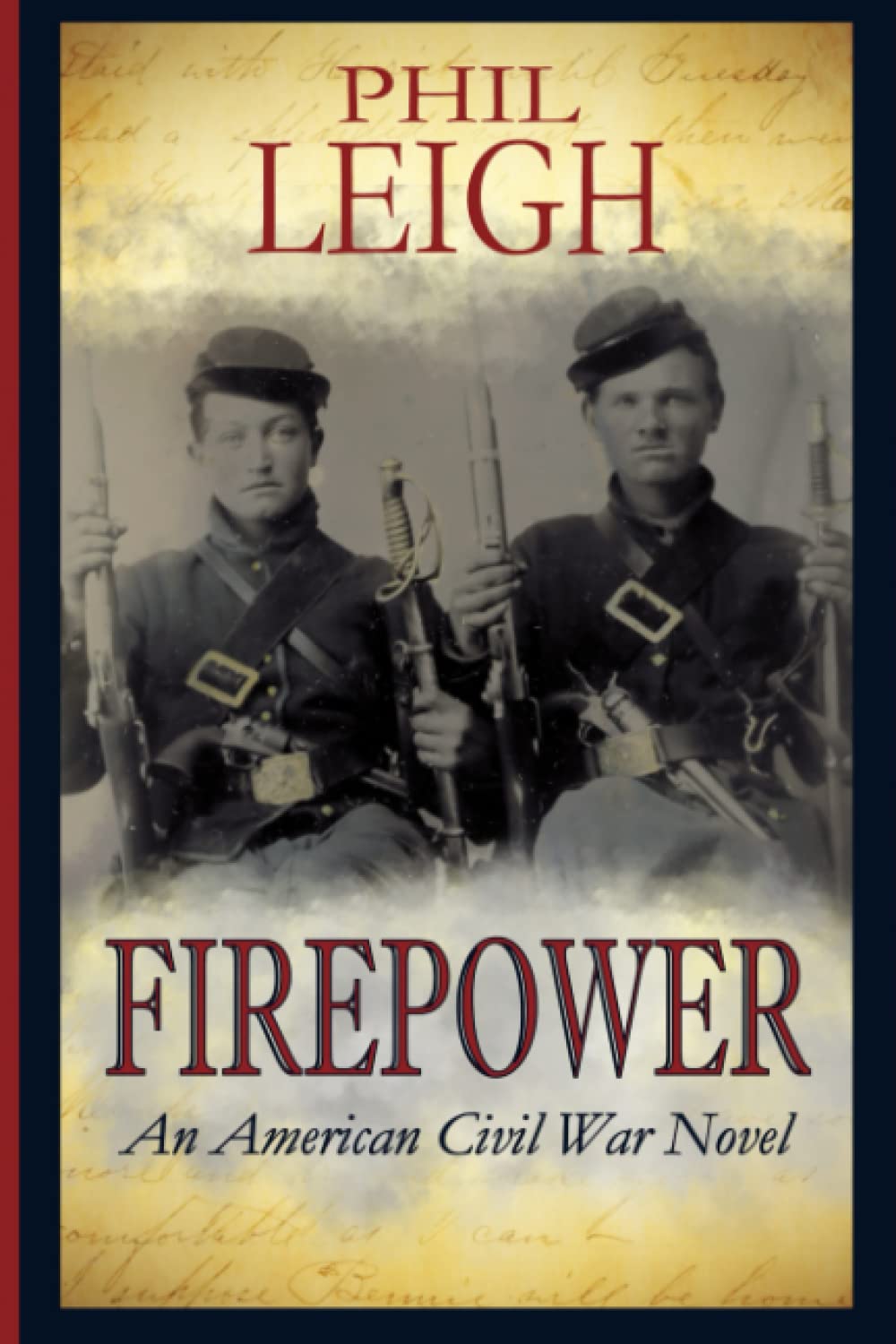A review of Firepower: An American Civil War Novel (Independent, 2023) by Philip Leigh
It is all so simple, the establishment historian writes. The typical Southerner was an illiterate, tobacco-chewing hayseed. The South—led by a handful of West Point stalwarts—resisted for four long years because of stubbornness, bravo, and the fact that they were far too stupid to realize they were defeated. In the end, however, the selfless Northerner won, thanks to their vast mental superiority. The fact that their white demographic base outnumbered the South 4 to 1 (even without the 489,920 foreign mercenaries they hired from 15 different countries) had nothing to do with it—at least according to Yankee mythology and their leading television personalities—most of whom never took a graduate level university course, much less passed one.
Phil Leigh helps explode this myth in his latest book, Firepower. It is framed as a novel because the Confederate Secret Service was involved. I tried to research this organization myself and experienced little success. This frustrated me at first, but after I thought about it a while, it made a great deal of sense. If a historian can trace the activities of a secret service 160 years after it ceases to exist, one doesn’t have to ask if it was any good or not—you know it wasn’t worth a hoot. And the dirty little secret is that the Confederate Secret Service ran circles around their Northern opponents, mainly because they were just plain smarter.
The highly industrialized North had every other advantage. Repeating rifles were invented before the war. They could shoot up to seven times faster than the standard muzzleloading rifled muskets of the War for Southern Independence (a/k/a the Civil War). The Union’s industrial base was vastly superior to that of the South, which had deliberately adopted an agrarian lifestyle. Some 92% of all industrial employment in the United States before the war was in the North. They had the technological expertise and industrial capacity to mass produce rapid-firing rifles and snuff out the Confederacy in the first year of the war. So why didn’t they? Phil Leigh’s answer will shock a great many people. It was because the Confederate Secret Service knew all of this and prevented it.
The Confederate Secret Service consisted of about 1,200 people. Most of them were rich, were well educated, knew more than one language, and were willing to spend money and take risks for their new country.[1] “Southerners operated clandestinely to cause the Union Army Ordnance Bureau chief to dismiss the weapons as unreliable ‘new fangled gimcracks.’” Mr. Leigh writes. “Firepower tells the story of how they did it and why historians never discovered their methods.”
And this is where the reviewer runs into the dilemma. To say more would be to give away the surprise at the end and ruin the novel for the reader. This I will not do. So there is little left to say, except the obvious.
I am grateful that there are historians out there who have a “North Star” similar to Mr. Leigh. Their mantra is “Seek the Truth,” rather than “Serve the Agenda.” Leigh sought the truth when he wrote about Grant’s failed presidency, about Reconstruction, and on his podcasts. He did it in again in Firepower, although some of the conversations are fictionalized. (We can’t connect all the dots with absolute certainty, and we don’t know exactly what they said, word for word.)
In Firepower, Phil Leigh offers an alternative history which probably actually happened. He framed it as a novel because the Confederate Secret Service did not leave a paper trail. They were too smart for that. Suffice it to say that this novel will open a great many eyes. It certainly opened mine concerning this aspect of the War for Southern Self-Determination.
*********************************
[1] Major General William A. Tidwell of the Central Intelligence Agency wrote an excellent non-fiction book, Come Retribution, about the Confederate Secret Service, with emphasis on how it assassinated Abraham Lincoln. It was published by the University Press of Mississippi in 1988 and is available on Kindle.







Good review, Dr. Mitcham. I just bought it!
I have a Barnes & Nobles version of Come Retribution, and haven’t read it yet.